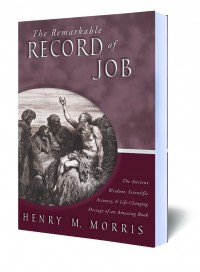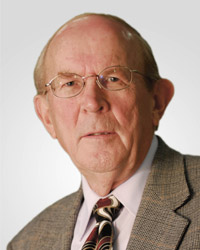
USA - Skepticism on Saving the Planet
Despite what it may look like on X, a majority of U.S. adults trust what scientists say about the environment.
That trust, however, may be shaky. According to research by the Political Psychology Research Group at Stanford University, the percentage of Americans who say they trust scientists on the environment has declined to 67% this year from 75% in 2020. In 2023, the Pew Research Center found that U.S. adults rated climate scientists’ understanding of the causes and solutions lower than in 2021.
Direct community engagement is key. Lesley Matthews, senior stakeholder engagement manager at Climeworks, one of the developers of Louisiana’s DAC hub, told me that the company was reaching out to local mayors, emergency responders, community groups and faith-based organizations.
Farmers are among the most skeptical group consumers in the world, explains Lithos co-founder and chief executive officer Mary Yap. Their soil is their livelihood, so they’re naturally suspicious about adding anything that may be harmful.
Some startups may have a harder time building trust than others: Planetary Technologies, a Canadian company piloting ocean alkalinity enhancement in the U.S., U.K. and Canada, met a lot of community resistance in Cornwall, where it is conducting field trials.
Planetary has held town hall meetings and had hundreds of additional conversations to address concerns, as well as enlisting a third-party organization to validate environmental safety and results.
The true benefits of carbon removal won’t be realized until we get close to net zero emissions, but trust grows slowly. If carbon removal is to play a role in fighting climate change in the future, the public will have to become acquainted with it today.
While governments can support trust-building with strong regulation, those looking to scale up carbon removal efforts should reach out to the community as early as possible and ensure benefits are felt locally, while being transparent, honest and providing as much objective information as possible.
-www.japantimes.co.jp, 10 October 2024
Arno's Commentary
Why declining trust in scientists? We may answer, because of the volume of reports—often contradictory—regarding so-called scientific discoveries in the media.
What we do know is that life expectancy continues to increase. A Google search reveals, “Life expectancy has increased dramatically since 1900, more than doubling to 71 years by 2021.” That simply means we are living in a healthier world than ever before. The food we consume is quite apparently safer and more nutritious. Not to mention the almost luxurious comfort offered to the average person.
No need to bundle up and travel to a relative or go shopping by horse, coming home to a cold house in the winter, and unbearably hot in the summer. That is all in the past.
Now, science is accelerating, fulfilling the words of Daniel: “many shall run to and fro, and knowledge shall be increased” (Daniel 12:4b).
Regarding the future, Genesis 8:22 declares: “While the earth remaineth, seedtime and harvest, and cold and heat, and summer and winter, and day and night shall not cease.”
The world cannot be saved, for it is destined to be destroyed, as we can read in 2 Peter 3:10: “But the day of the Lord will come as a thief in the night; in the which the heavens shall pass away with a great noise, and the elements shall melt with fervent heat, the earth also and the works that are therein shall be burned up.” There are a number of reputable scientists who agree that the world will deteriorate, based on the scientific fact that age degenerates. Quite opposite to the evolutionists, who say age renews.
It is of interest what Paul writes to his spiritual son, Timothy: “O Timothy, keep that which is committed to thy trust, avoiding profane and vain babblings, and oppositions of science falsely so called” (1 Timothy 6:20).
Just a few centuries ago, scientists debated whether the earth is flat or round, yet the Bible stated more than 3,500 years ago, “He stretcheth out the north over the empty place, and hangeth the earth upon nothing” (Joel 26:7).



